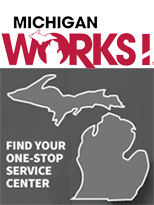Resume and Cover Letter Tips
 Your resume and cover letter are often the first impression employers will make of you, so it is critical that both reflect the best you have to offer. A well constructed resume and compelling cover letter can make the difference between getting your foot in the door and being just another name in the pile. In fact, a poorly written resume or cover letter can take you out of the running completely. Take advantage of the many resume and cover letter writing resources available to ensure you are making the best first impression, and take a look at some of our own tips and pointers below to make your resume and cover letter the best it can be!
Your resume and cover letter are often the first impression employers will make of you, so it is critical that both reflect the best you have to offer. A well constructed resume and compelling cover letter can make the difference between getting your foot in the door and being just another name in the pile. In fact, a poorly written resume or cover letter can take you out of the running completely. Take advantage of the many resume and cover letter writing resources available to ensure you are making the best first impression, and take a look at some of our own tips and pointers below to make your resume and cover letter the best it can be!
Resume
- Objective Statement – Many people these days like to include an “objective statement” at the top of their resume, but many experts are starting to advise against it as well. If you do want to include one, make sure it adds something to the resume. If your Objective Statement is “I want to work in IT” and you are applying for a job in IT, that does not help the employer. If, however, your Objective Statement is more along the lines of “I want to pursue a fulfilling career in the Healthcare IT industry using my strong computer networking and Java programming skills”, then you may have a case to include an objective statement. Be specific with what your objective is, and if you find that you don’t really know what your objective is, then ditch it.
- Length – Unless you feel your background really calls for more, limit your resume to one page. Employers don’t expect college students and recent graduates to have tons of professional experience, and therefore will be expecting one nice page. Fill up one page, making sure you are cognizant of the amount of “white space”, with your most relevant points of experience.
- Work History – Any work and compelling activities or volunteer experience should be put into strong bullet points, starting with a solid verb. You don’t need more than 3-5 bullets per position, but make sure the bullets accurately and fully describe what your tasks were, how you accomplished them, etc. When possible, try to align your past experience and bullets with the job or internship description you are applying for.
- Grammar – Double, triple, and quadruple check your grammar. Have your parents, grandparents, and cousins read over your resume before submitting it to any prospective employer, and then check again. There is no excuse for having spelling and grammatical errors on a resume.
- Best Experience First – A lot of students have very little relevant work experience, and that’s fine, but make sure your best experience is at the top of your resume. If you have only worked at generic fast food restaurants or grocery stores, that probably isn’t going to appeal to many IT or engineering companies, so put your education and some interesting classes at the top of your resume. If you taught yourself how to program, by all means make sure employers are seeing that. If you have some strong certificate, make sure that is highly visible. Don’t use a set order on your resume for no reason.
- Formatting is your Friend – Find a nice, clean resume template (generally staying away from those with extravagant designs) somewhere on the internet and insert your experience into it, changing around the order when you see fit. It’s very clear to employers when someone starts a resume from scratch, which is OK, but you can find nice templates out there that effectively use bold, bullets, indents, etc. effectively and help your resume look that much sharper.
- Avoid opinions – It’s great to showcase what your interests and talents are, even if it has nothing to do with your work experience, but make sure it is adding something to your resume. We don’t need to know what church you go to, we don’t need to know that you think your school is the best, we don’t need to know that you have four siblings. Keep it professional.
Cover Letter
A cover letter is a narrative, and focuses on why the skills, experience and education listed in your resume make you uniquely qualified for the position you are applying for. The cover letter should be specific to the job you are applying for and should not simply repeat the information already in your resume. Any time you apply for a different position, be sure to tailor your cover letter for that specific position and its job description. Often companies will provide specific instructions for what information should be included in a cover letter alongside a job description.
Resources
CareerOneStop →
Provides advice on creating new resumes and cover letters or updating your existing ones.
Get connected to more resources through your local Michigan Works! Service Center, a proud partner of the American Job Center network.

